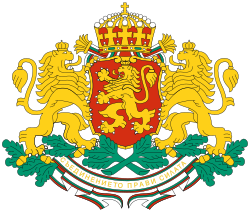| | ||||||||||||||||||||||||||||||||||||||||||||||||||||||||||||||||||||||||
17 August 1919 | ||||||||||||||||||||||||||||||||||||||||||||||||||||||||||||||||||||||||
All 236 seats in the National Assembly 118 seats needed for a majority | ||||||||||||||||||||||||||||||||||||||||||||||||||||||||||||||||||||||||
| Turnout | 54.53% | |||||||||||||||||||||||||||||||||||||||||||||||||||||||||||||||||||||||
|---|---|---|---|---|---|---|---|---|---|---|---|---|---|---|---|---|---|---|---|---|---|---|---|---|---|---|---|---|---|---|---|---|---|---|---|---|---|---|---|---|---|---|---|---|---|---|---|---|---|---|---|---|---|---|---|---|---|---|---|---|---|---|---|---|---|---|---|---|---|---|---|---|
This lists parties that won seats. See the complete results below.
| ||||||||||||||||||||||||||||||||||||||||||||||||||||||||||||||||||||||||
 |
|---|
Parliamentary elections were held in Bulgaria on 17 August 1919 [1] to elect members of the XVIII Ordinary National Assembly. The result was a victory for the Bulgarian Agrarian National Union, which won 77 of the 236 seats. Voter turnout was 55%. [2]

